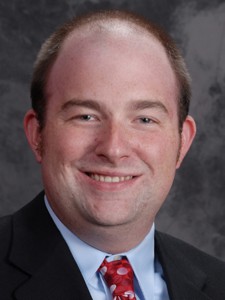PRSA Sections Series: Pros Comment on Challenges, Benefits of Entertainment and Sports PR
If you have ever wanted to know more about the different types of public relations careers straight from professionals, then the PRSA Sections Series is here to help. The PRSA Sections Series highlights the 14 different PRSA Professional Interest Sections. Each month, professionals will answer questions about their specific subcategory of the industry.
Our seventh post in this series was written by four members of the Entertainment and Sports Section: Natalie Mikolich (NM), Chris Yandle (CY), Marlon LeWinter (ML) and Andy McGowan (AM). For more on these professionals, read their bios at the end of the article.
1. What kind of work do professionals in your section typically do?

NM: In our industry, there are many things public relations professionals working in sports public relations may do on any given day. From writing press release announcements to pitching the media, securing media coverage, lining up interviews and photo shoots and planning events for product launches or grand openings, there is a lot we might do on a single day and need to multi-task at the same time.
CY: Sports and Entertainment is a wide spectrum. While sports are entertainment, I don’t think that there is a lot of intersection between the public relations functions of the two industries. For the sports side, people in my position oversee social media, website, content curation, and the overall publicity efforts for a college athletics department. As with any industry, the public relations position is high stress but must balance many responsibilities. We serve many different areas and learn to find a delicate balance that may or may not put us in precarious situations.
ML: I have been in the public relations industry for the past 13 years. Right now, I work with leading brands such as Under Armour, Timex, Dicks’s Sporting Goods, Microsoft and many others.
AM: Typically, public relations professionals in this area work with entertainment companies, sports teams or leagues, corporate sponsors or for agencies that represent companies, products or celebrities. As for the kind of work, it depends on where you go. By that I mean you may work for a big company, a small agency or minor league sports team. Early in my career, I worked for a minor league sports team and I was the public relations department. But it was great because I had the opportunity to do a variety of things – like sales, sponsorships and public relations.
2. What can students expect when pursuing an entry-level position in the industry?

NM: They should expect for things to be extremely competitive, happen really fast, be able to multi-task and to turn things around on short notice. Students should also be willing to help with whatever is needed at an agency or in a communication position and they should be willing to support those they work with in any way they can. In addition to this, students should expect to work nights, weekends and even holidays and know that there are often very few real “days off” in sports since things are happening all the time.
CY: Breaking into sports is hard. Expect to be disappointed at first. Very few – if any – people go straight from undergraduate to full-time employee. You’re not going to walk across the graduation stage, get your diploma and magically get a job. It doesn’t work that way. In fact, many of us go to graduate school afterward or get an internship to bridge the gap. The more experience you have, the better for you. Going to graduate school was the best decision I’ve made professionally.
ML: What you put into it is what you will get out of it. Be the first to arrive, the last to leave. Ask questions, work hard, be open-minded and don’t be afraid to fail. There is no exact science to the industry but there is no excuse for laziness. It is a privilege to have your job because if you don’t want it, someone else right behind you will.
AM: Students can expect it to be very competitive. Everybody wants to work in entertainment or sports. You’ll find that every opening receives a lot of resumes. Having been in the position to hire entry-level candidates, I am always looking for people that have experience. What have you done with your four years in college? Grades are important, but so is experience. So volunteer for sports or entertainment events, secure an internship or two. It’s those experiences that will get you noticed when you’re being compared against the other candidates.
3. What advice do you have for students looking to enter your sector of public relations?

NM: I think it is important for students looking to enter the sports public relations sector to have an understanding that sometimes breaking in is the toughest part. However, once you do, it will open the door to many opportunities. Students just starting out in the sports industry should look for internships to gain experience and then begin applying for full-time positions. They also need to be willing to do whatever it takes just to get their foot in the door.
CY: Expect to work…hard. Expect 50-70 hour weeks. Working in sports is not a career, it’s a lifestyle. You will have to do grunt work, and some not-so-fun jobs. I’m 33 and an assistant athletic director. I still do grunt work. Don’t be above the job. Do everything 100 percent and continue to do what’s asked of you,and more. This industry rewards you for hard work.
ML: Four things: Passion, energy, persistence and drive. Find something you are passionate about and you never have to work a day in your life. Always bring the energy (creativity comes from within), continue to follow up, show people how hungry you are and don’t take no for an answer
AM: It’s not all about the money. Find a job that you love and the money will come. However, remember it is work. And, it means long hours. So be prepared for that. Lastly, public relations is all about people and connections. It is who you know. Or, do you know someone who knows someone that can assist you. And, you’ll spend time pitching stories. So you need to like to talk to people (yes, talk to them — an actual conversation is required at some point).
4. What essential skills do students need to do well in the industry?

NM: In addition to having good communication capabilities whether it is via email, phone, text or on social media, along with exceptional writing skills, I think paying attention to details is extremely important in our industry. I also think keeping up on social media and breaking news is becoming a required skill for professionals of all levels.
CY: This isn’t necessarily a skill, but don’t be afraid to take risks and make mistakes. To this day, I still hate making mistakes but I know that’s the only way I’ll get better. Also, learn how to network effectively. Build real, meaningful relationships that will transcend your career. Too many college kids think sending LinkedIn invitations is networking. It’s not. Be human.
ML: Reading: You will learn by reading. Pick up a book that truly interests you. Maybe you aspire to be the next entrepreneur on “Shark Tank” or maybe you want to know what motivates Derek Jeter, there are tons of books out there. Pick one up.
AM: Other skills that are essential for today’s public relations executive include social media skills, the ability to use design programs (Photoshop, InDesign, Illustrator), and research and measurement skills. Today’s public relations professional is always being asked to show their Return on Investment (ROI), especially on the agency side. So, you need to be able to understand measurement and how to measure your success.
5. What has surprised you most throughout the course of your career?
NM: Just how far good relationships can go with those you work with, especially the media. Because of the relationships I have been able to establish with reporters, editors, producers and many others, I am fortunate to always hear back from them when I reach out. Something that has surprised me with clients is how quickly they forget about big features that have just come out. I have worked with several clients over the years who I like to say have the “more, more, more syndrome” and are always asking “what is coming out next?” In a way, it helps keeps you motivated and on your toes to always make sure you never get too complacent with your work.
CY: First, sports is a big industry, but it’s an extremely tight-knit ecosystem. Most of this industry is incredibly gracious with their time and knowledge. Second, since I was a student worker in 2000, this industry has changed dramatically and we’ve had to adapt with each sweeping technological advancement. But with that, the digital divide between some schools is very noticeable. Some are on the leading edge of innovation, while others are struggling to follow and leave the past behind
ML: Things have changed quite a bit. In 2003 when I was applying for internships and entry-level jobs, I did anything I could to make myself stand out. I always wore a crisp suit, carried a notebook with a pen and would send thank you notes via regular mail. Now people ask what they should wear, type notes on their cell phones and fire off cryptic text message “TU” (that’s short for thank you). I never got paid for an internship, my reward was a recommendation letter. I understand times have changed – but that shouldn’t prevent you from selling yourself to a company and going “old school” by showcasing to them why you are the perfect fit.
AM: What has surprised me most is that it’s still fun after being in the field for nearly 30 years. Every day brings something new. Working in sports has always been fun because a new season is always right around the corner filled with hope and promise. That means that there are always new stories to pitch. It never gets old. So, it’s never felt like work. And, that’s what’s made it fun.
Does this post have you interested in a career in entertainment and sports? Be sure to check out the PRSSA Internship Center and the PRSA Job Center for opportunities.
—
Natalie P. Mikolich is the founder of npm | pr and the Public Relations Society of America (PRSA) Entertainment and Sports Section 2016 Chair-Elect. In addition to providing public relation services for top global sportswear and equipment companies like Prince Tennis, Natalie has worked with some of the leading sports and entertainment agencies such as Blue Entertainment Sports Television (BEST) and Lagardere Unlimited Tennis. Natalie has represented many world class professional and Olympic athletes including Greatest Doubles Team of All-Time Bob & Mike Bryan, Seven-time Grand Slam Champion and former WTA World #1 Justine Henin, 2012 London Olympic Bronze Medalist Marlen Esparza and 2014 CrossFit Games Winner Camille Leblanc-Bazinet along with Major League Soccer Medical Coordinator Dr. John Gallucci. Follow Natalie on Twitter @npmikolich
Chris Yandle is the assistant athletic director for communications and public relations at Georgia Tech, where he is a member of the department’s senior leadership team and oversees the day-to-day operations of the Communications and Public Relations office. He is regarded as one of college athletics’ leaders in social media and progressive public relations. He is also an adjunct public relations instructor at Kennesaw State and is the co-author of Developing Successful Social Media Plans in Sport Organizations. Chris holds a bachelor’s degree in public relations from Louisiana-Lafayette, and a master’s degree in sports management from Marshall.
Marlon LeWinter has over 13 years of experience in consumer public relations. His background includes eight years of working with Under Armour. He has also worked with leading brands including Dicks Sporting Goods, Microsoft and Timex. Born and raised in New York, Marlon and his fiancé Ashley recently relocated down to South Florida where he currently works as an account director at rbb communications. He is a 2003 graduate of Quinnipiac University in Hamden, Conn. where he also serves on the Advisory Board for the School of Communications. Marlon has hosted client activations at some of the world’s largest sporting events including: 8 Super Bowls, 6 NFL Combines, 2 MLB All-Star Games, the World Cup and has also traveled internationally for his clients. You can connect with Marlon on LinkedIN, Twitter/Instagram (@lewintermarlon) or via email at marlon.lewinter@rbbcommunications.com.
Andy McGowan is a senior-level strategic public relations and marketing executive with more than 25 years experience across several high profile brands and industries. In 2015, he founded Watkins McGowan, LLC, a strategic communications firm. Before founding Watkins McGowan, he spent his career in leadership roles at companies including UPS, Qualcomm, Red Bull and the National Hockey League. Andy is also a visiting professor in the J. Mack Robinson College of Business at Georgia State University where he teaches business communications at both the graduate and undergraduate levels. He has also been a faculty member at a number of other universities. He has a bachelor’s degree from the University at Albany, a master of education with a concentration in sports management from Springfield College, and an MBA from the University of Hartford.
